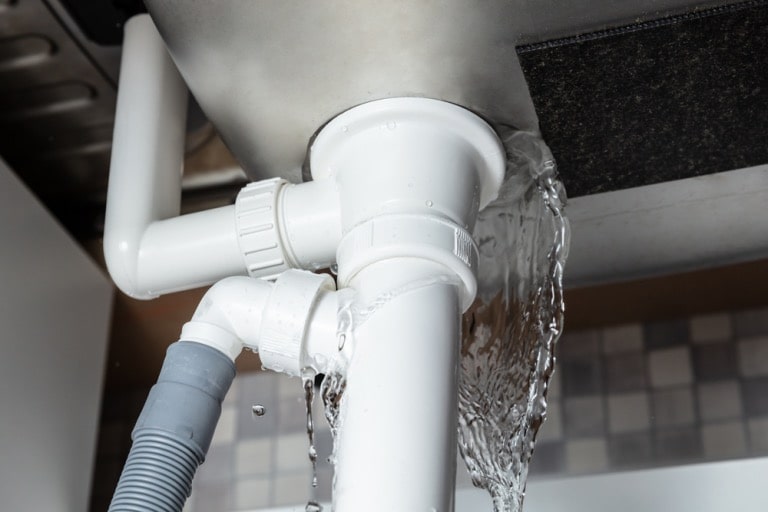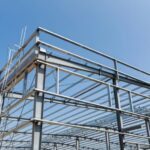We’ve all been there – standing over a slow-draining sink, armed with a plunger and a bottle of drain cleaner, convinced we can fix the problem ourselves. It seems like a quick and easy solution, right?
But what if we told you that DIY drain cleaning can actually do more harm than good? Let’s explore why attempting to clean a blocked drain yourself can be dangerous and why professional help is essential.
Common DIY Drain Cleaning Methods
Most homeowners turn to a few popular methods when faced with a clogged drain. These include using a plunger, pouring chemical drain cleaners down the sink, or even trying homemade solutions like baking soda and vinegar. Some people put boiling water down the drain.
These methods are appealing because they promise quick results and don’t require a call to the plumber. However, while they might provide short-term relief, they often fail to address the underlying issue.
Potential Risks of DIY Drain Cleaning
Damage to Pipes: One of the biggest risks of DIY drain cleaning is the potential for pipe damage. Using tools improperly or applying too much force can cause cracks or breaks in your pipes, leading to leaks and even more costly repairs. Chemical drain cleaners are also notorious for causing corrosion, which can weaken your pipes over time.
Health Hazards: Chemical drain cleaners are not only harsh on your plumbing but also pose serious health risks. Exposure to these chemicals can result in toxic fumes that irritate the eyes, skin, and respiratory system. In some cases, improper handling can lead to chemical burns or other injuries.
Ineffective Solutions: Many DIY methods only provide a temporary fix. They might clear the immediate blockage but often fail to remove the debris build-up or address deeper issues in your plumbing system. This means the clog is likely to return, sometimes worse than before.
The Advantages of Professional Drain Cleaning
Expert Knowledge and Experience: Professional plumbers bring a wealth of knowledge and experience to the table. They are trained to identify the root cause of the blockage and have the expertise to tackle even the most stubborn clogs effectively.
Specialized Tools and Techniques: Professionals have access to advanced tools and techniques that aren’t available to the average homeowner. From hydro jetting, which uses high-pressure water to clear out debris, to video inspections that allow for a detailed view inside your pipes, these tools ensure a thorough and lasting solution.
Comprehensive Solutions: Unlike DIY methods that focus on immediate relief, professionals provide comprehensive solutions. They not only clear the blockage but also take preventive measures to ensure your drains remain clear in the future.
Water Is Draining Slowly: Does There Need to Be Urgency?
You’ve discovered that water in your sink is draining away slowly. This could be after doing the dishes or if you’re washing your hands. Either way, the water is taking longer to disappear than it normally does. Not only is this annoying, but it can mean that you have to wait until it drains to continue what you’re doing.
So, while you recognize this is a problem, is it one that demands urgency to fix it? The answer might surprise you. Yes, when your water is draining slowly, this is a clear sign that there’s a problem, and acting quickly is going to be better for your property and make your life easier. Let’s take a look at what you need to know.
What Is Causing Slow Drainage?
Slow-draining water isn’t normal. What you must understand is that there’s something in the drains that’s causing this reaction. Namely, there’s some type of blockage, which is slowing down the water and not allowing the sink or bath to empty as quickly as it normally should. This blockage could be anything from food debris to hair and soap scum, depending on the drain.
Why Should There Be Urgency?
Most people assume since the water is draining that this isn’t an urgent problem. Yes, it’s annoying, but it’s not like there’s a total blockage. So, you can afford to wait a few weeks for a professional. But this is the wrong attitude to take. What can happen is that the blockage can get worse.
In particular, it can grow in size. This happens more often than you think because other debris gets stuck to the blockage. So, it grows bigger over time and this eventually means that no water will drain away.
What you have is a situation that becomes more serious. The blockage is bigger and can damage the drainage system. It also becomes a more expensive problem to fix. To avoid this scenario, the best step is to get professional services as soon as possible. You solve the issue, avoid damage to the drainage system, and keep your costs down.
Conclusion
DIY drain cleaning might seem like a quick fix, but it often leads to more problems than it solves. From potential pipe damage and health hazards to ineffective solutions, the risks far outweigh the benefits. On the other hand, professional drain cleaning offers expertise, advanced tools, and comprehensive solutions that ensure your plumbing system remains in good health.








